The growing popularity of oat milk and dairy milk alternatives in the last few years is unquestionable. A third of U.K households (32%) now buy dairy free milk, according to a Swedish leading plant-based drink brand Oatly. Yes, I am one of those people! For around a year and a half now I have been buying dairy milk alternatives, with Oatly being if not, one of my favourite brands. I love everything about Oatly; The taste, the health benefits (most important for me) and of course, their sustainability.

Speaking to leading food outlet, Speciality Food magazine, Oatly’s U.K general manager said that as a result of increased consumer awareness, they know they can have a direct impact on the health of the planet ‘through the products they choose to buy’. Before this he said that consumers mainly opted for dairy free alternatives for dietary or health reasons but now many choose them for sustainability.
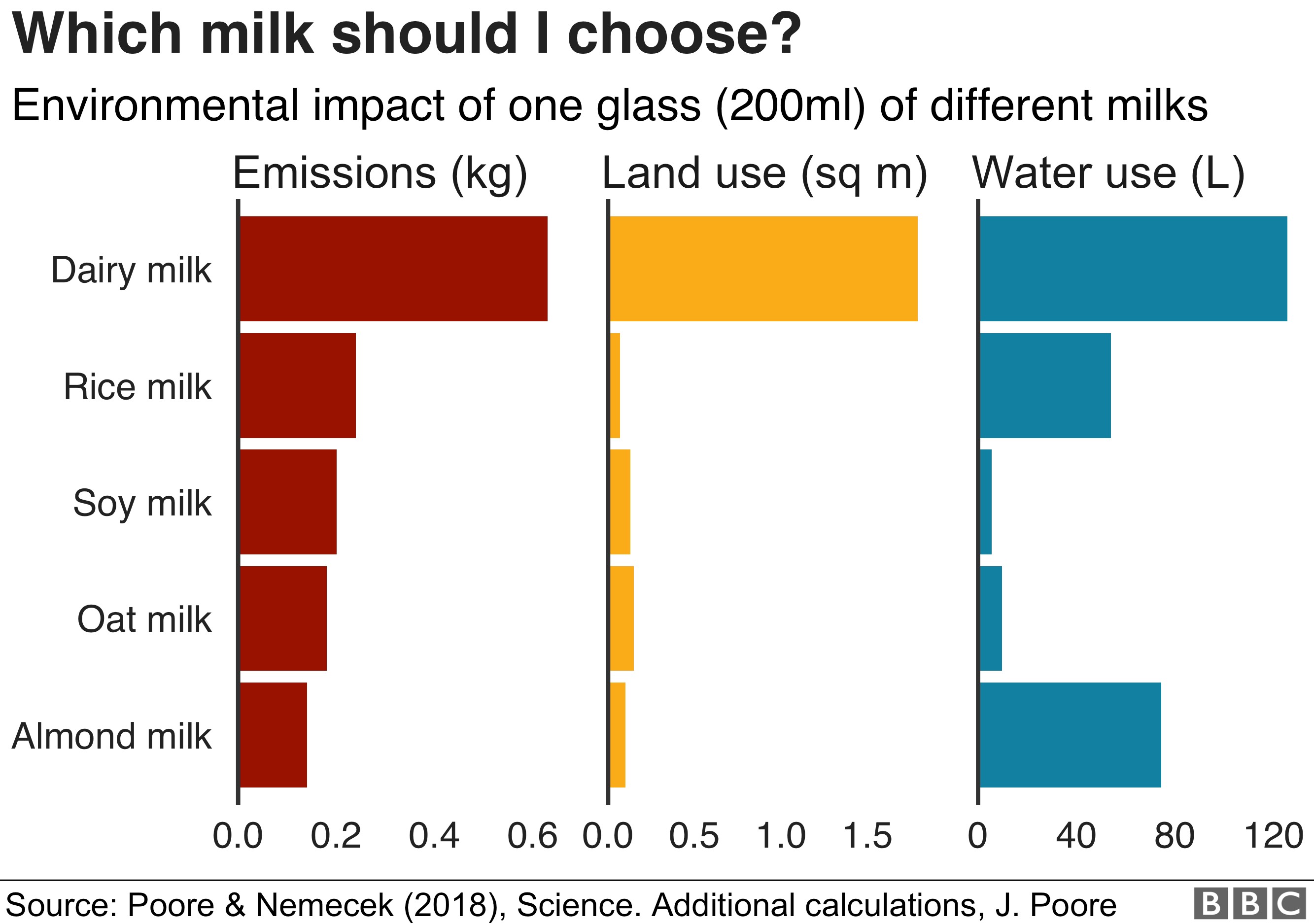
So why have Oatly received backlash and are being ‘Cancelled’ by many consumers now?
Well, here is the run-down. Whether your vegan, vegetarian or a meat eater I am sure you are aware of some of the motives behind vegan brands; To be ethical, honest, totally transparent, and sustainable to name a few. Oatly have built its name around sustainable farming, low carbon, and ethical business principles.
“Our goal is to always deliver products that have maximum nutritional value and minimal environmental impact.” Their ‘Oatly Way’ reads.
However, they have recently been at the forefront of a PR disaster because of links involving their new choice of investor. The investment was part of a $400 million funding package in which half was secured through a green-deal bank loan which commits Oatly to ensure all its investors are in sustainable solutions.

The rest however, a 10% stake of $200 million came from private equity consortium Blackstone. In the past they have made headlines for its alleged involvement in the Amazon deforestation, and because, its founder Stephen Schqarzman has donated to Donald Trump and the republican party ( I think we are all familiar with Trumps views on climate change ) , and briefly served as chairman of Trumps strategic and policy forum in 2016. Yikes.
The start of the backlash
Of course, this decision did not go unnoticed by vegan activists all over the world. The epicentre of the turmoil however began on Twitter. A thread was created by activist and influencer Laura Young, also know as Less Waste Laura.
Here is what she had to say:
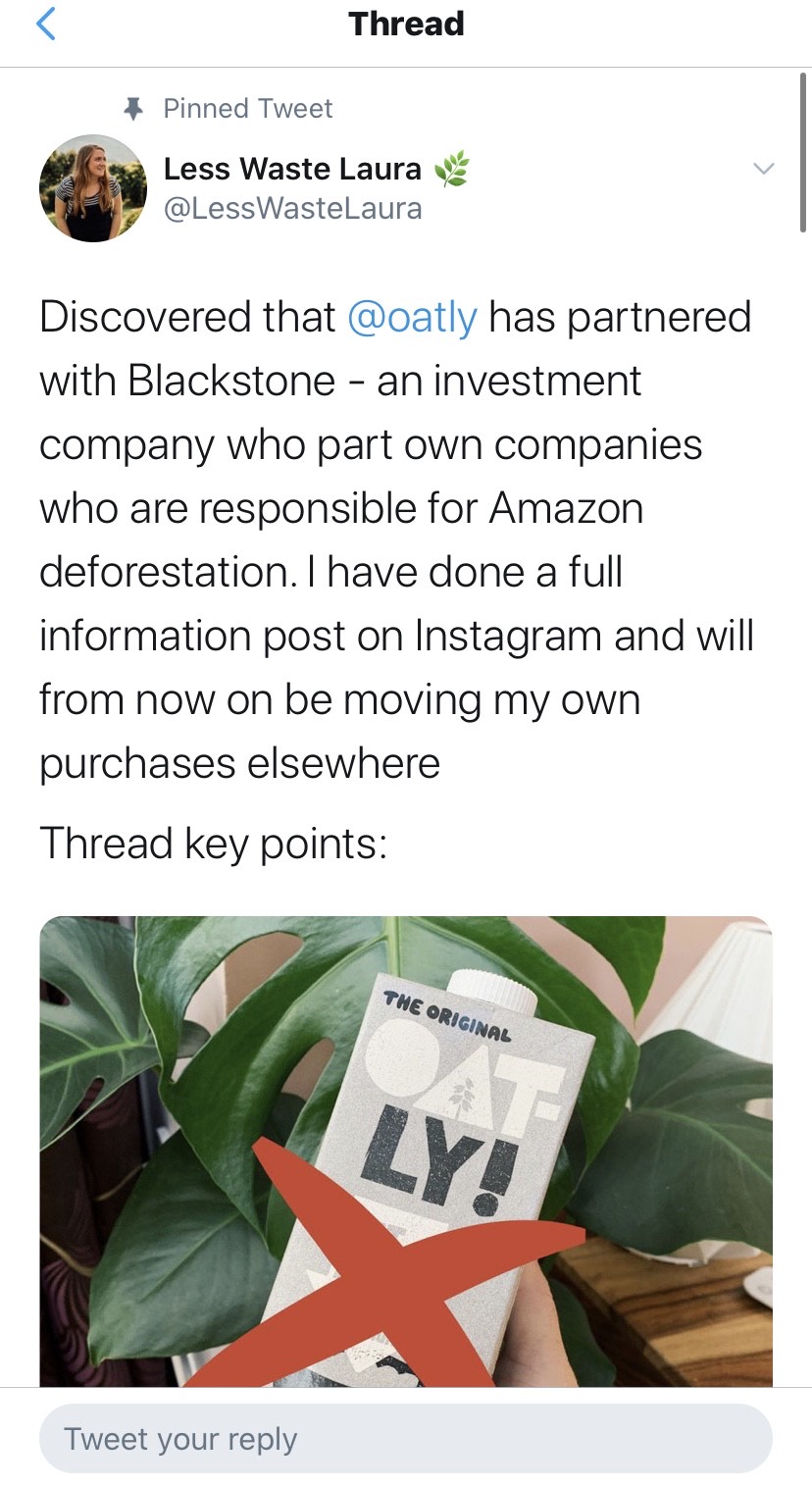
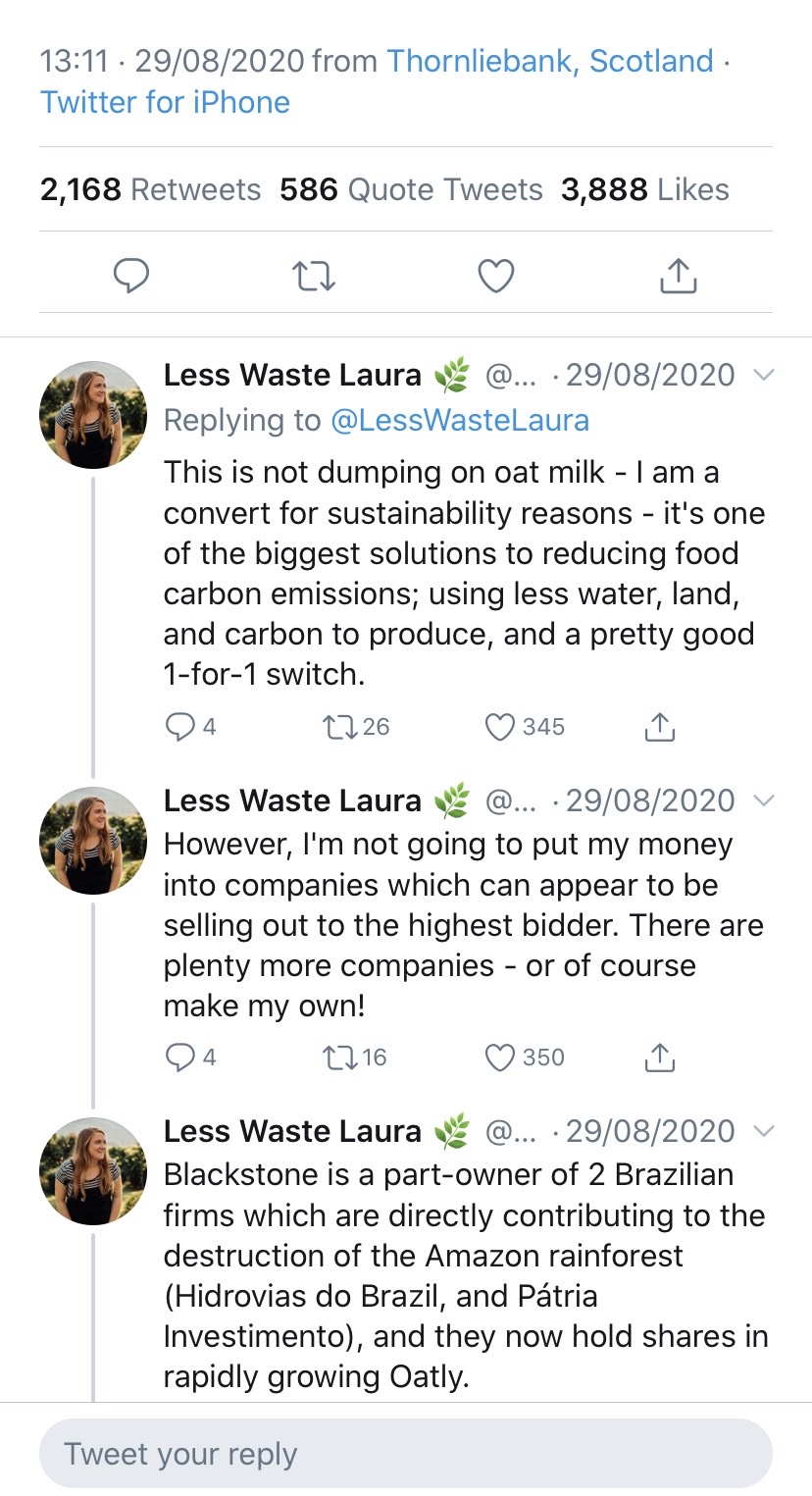
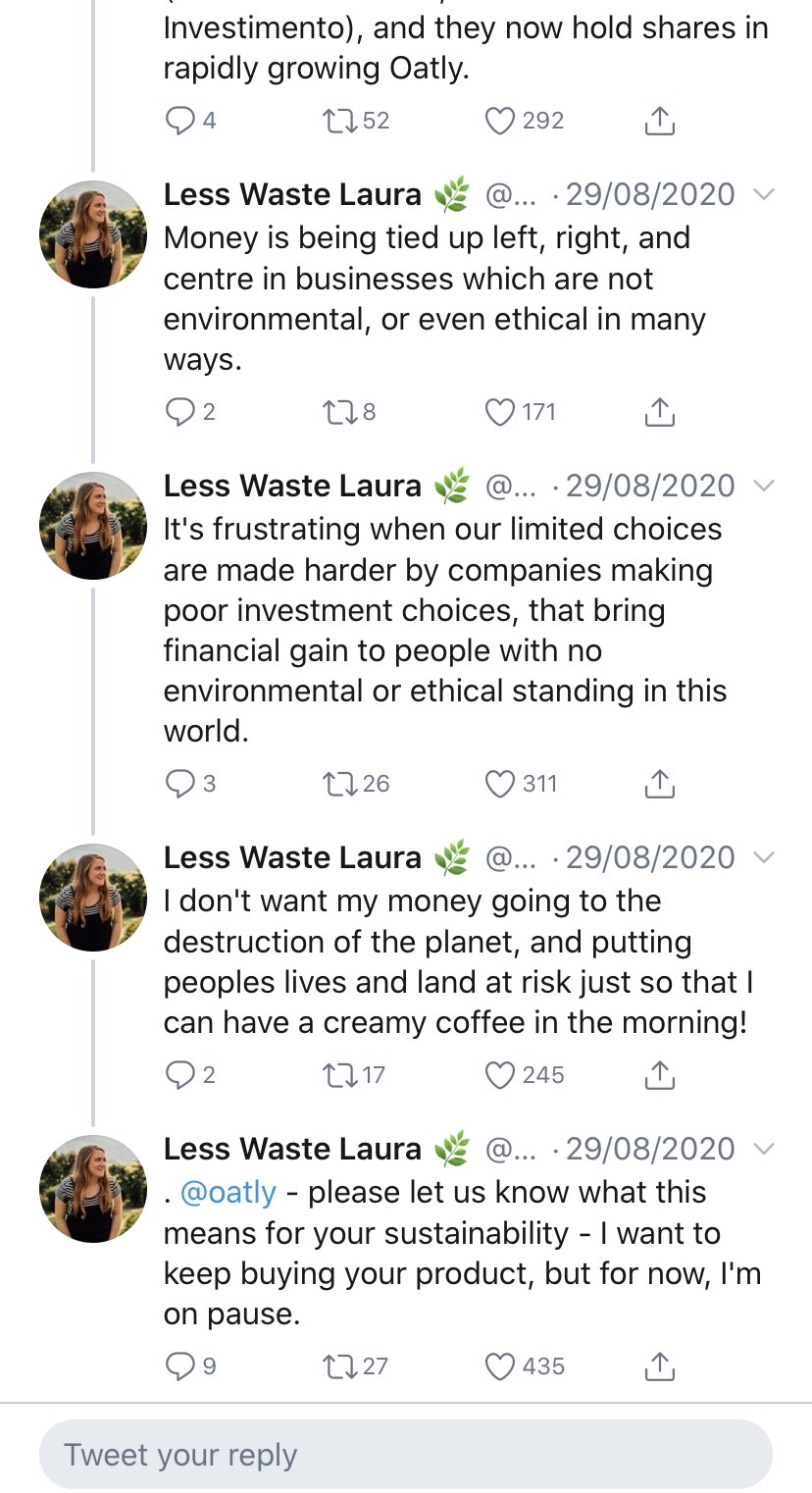
This thread created a huge stir across social media, and lead many to boycott the brand and find a dairy free alternative.
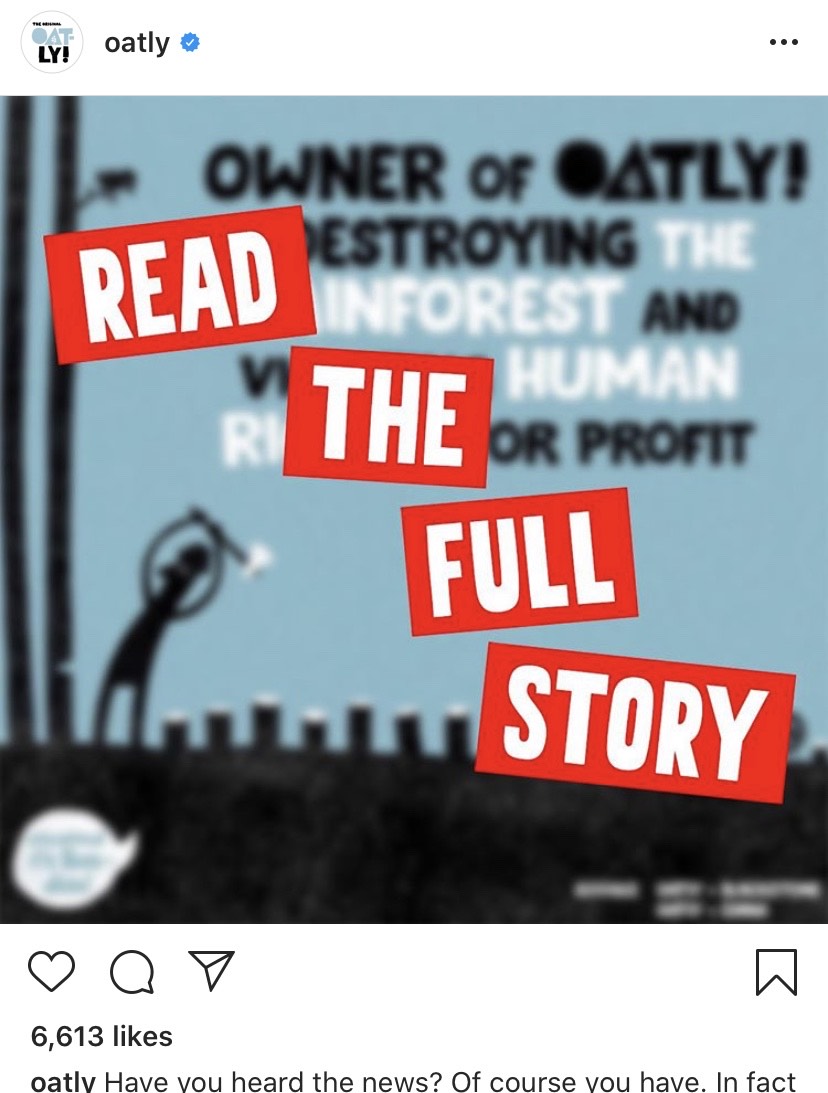
Oatly’s response
Oatly released an open letter in response to their PR disaster and posted this photo across their social media platforms. The letter was aimed at any stakeholder of the company which they upset in their decision. It was rather a sympathetic letter in my opinion, to win back the hearts of those consumers who turned their back on the company and to plead with them to understand. They explained, “Getting a company like Blackstone to invest in us is something we have been working on to create maximum change to benefit the planet”
They knew that they would not be able to please everyone in their decision, but they placed great emphasis on how Blackstone’s investment will bring them larger returns ( for example, more than the meat and dairy industry) by pushing the oat based sustainability movement across the globe. In turn, this may influence other private equity firms to make sustainable investments.
Oatly also discussed that with the help of Blackstone’s capital base and expertise in the global market it would help them achieve their goals. These goals would see us having a chance of reaching the global climate goals of cutting the greenhouse gas emissions by 50% before 2030 and reach net zero emissions by 2050.
Could this PR disaster see a decrease in their market share if consumers turn to alternative brands?
Will I turn to an alternative brand?
At first, I had considered it but after reading their letter I understand and accept the overall goals they are trying to achieve. And, if you have every tried Oatly (barista version, if you know, you know) in your tea or coffee I am sure you will agree it would be a difficult product to depart with.
You can read their full letter here: https://www.oatly.com/uk/climate-and-capital
Chanelle Quinn is a final year BSc Communication Management and Public Relations student at Ulster University. She can be found on: LinkedIn.
